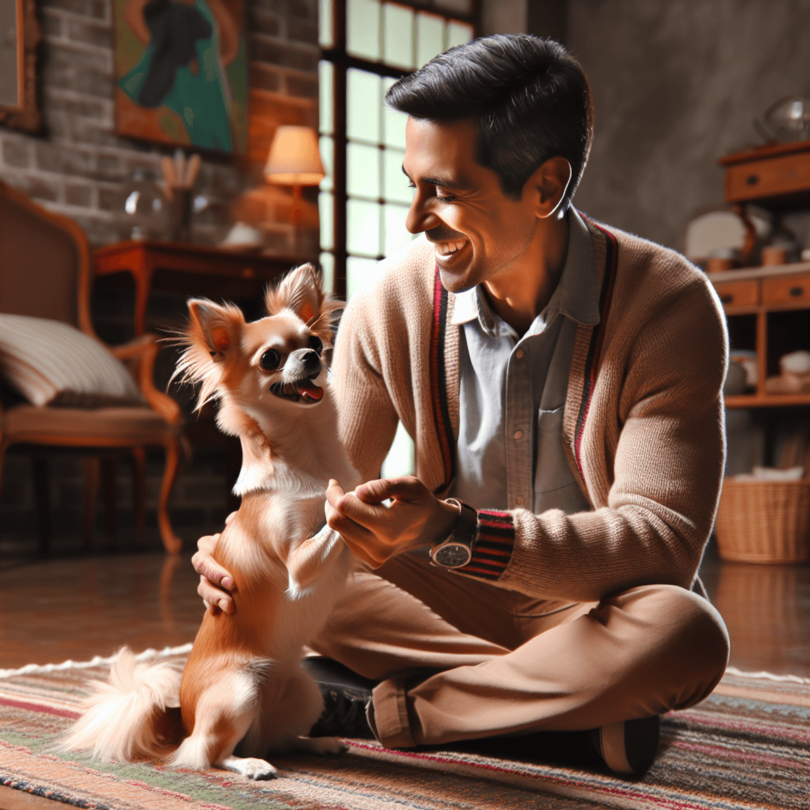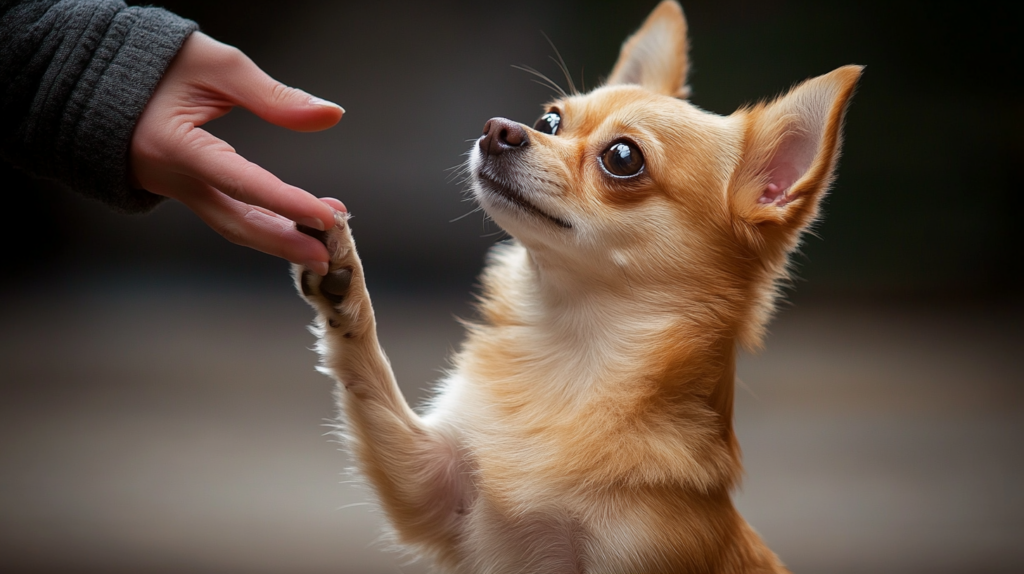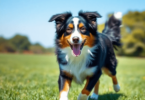Understanding the Chihuahua Temperament and Personality
Chihuahuas are small dogs with big personalities. Known for their spirited nature, these pint-sized pooches typically weigh between 3 to 6 pounds and stand 15-22 cm tall. As part of the toy group, they come in both short and long coat varieties, adding a splash of diversity to their already charming presence.
Key characteristics defining Chihuahua temperament and personality include:
- Loyalty: Chihuahuas form strong bonds with their owners, often following them around like shadowy sidekicks.
- Alertness: Their keen senses make them excellent watchdogs, always ready to alert you to any unusual activity.
- Playfulness: These little furballs have an abundance of energy, thriving on playtime and mental stimulation.
Understanding these traits is crucial for potential owners. Recognizing a Chihuahua’s unique blend of feistiness and affection helps new owners create a nurturing environment that caters to their specific needs. This knowledge ultimately leads to a harmonious relationship between you and your furry friend, paving the way for a joyful companionship filled with laughter and adventure!
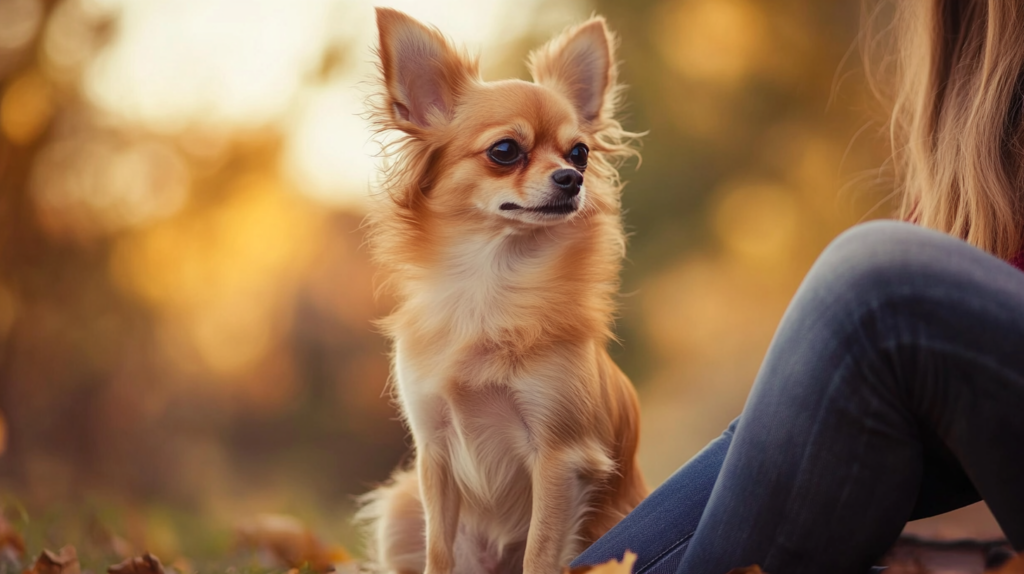
2. Key Traits of Chihuahua Temperament
Chihuahuas are a delightful blend of personality traits that make them unique companions. Here’s a closer look at their most common characteristics:
1. Loyalty
Chihuahuas are famously devoted to their owners, often forming tight bonds and displaying protective behaviors. This loyalty can lead to fierce companionship, making them wonderful pets for those who appreciate a dog that truly cares.
2. Intelligence
These small dogs pack a big brain! Chihuahuas are intelligent and quick learners, which can make training an enjoyable experience. Their sharp minds thrive on challenges, so engaging activities are essential to keep them stimulated.
3. Feisty Nature
Don’t let their size fool you! Chihuahuas often have larger-than-life personalities. They may be bold and assertive, sometimes exhibiting a feisty attitude that can surprise unsuspecting visitors.
4. Shyness
Not every Chihuahua is a social butterfly. Some may exhibit shyness or timidness, especially around unfamiliar people or environments. Early socialization is crucial in helping these pups gain confidence.
Individual differences play a significant role in shaping each Chihuahua’s temperament. Factors such as genetics, environment, and early experiences contribute to how they express their unique personality traits. Understanding these nuances can help potential owners find the perfect match for their lifestyle.
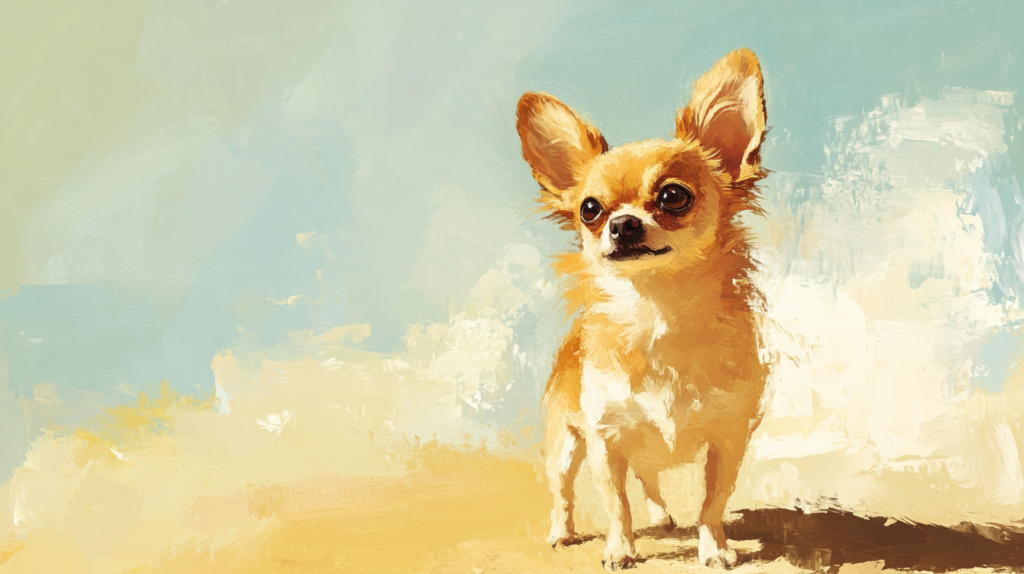
3. Understanding Chihuahua Behavior Patterns
Energy Level and Exercise Needs
Chihuahuas may be small in size, but their energy levels can be surprisingly high! These little dynamos need around 30 minutes of exercise daily to keep them healthy and happy. Regular activity not only helps maintain their physical well-being but also supports their mental stimulation—essential for this intelligent breed.
Here are some activities that can keep your Chihuahua both physically active and mentally engaged:
- Short Walks: A few short walks each day allow them to explore their surroundings and burn off some energy.
- Playtime: Engaging in games like fetch or tug-of-war can be a great way to exercise while building a bond with your pet.
- Puzzle Toys: These interactive toys challenge your Chihuahua’s mind and help alleviate boredom.
- Training Sessions: Incorporate training into playtime. Teaching new tricks or commands can stimulate their brain while reinforcing good behavior.
It’s important to remember that Chihuahuas thrive on short bursts of activity rather than long sessions. Their tiny legs tire easily, so keep playtimes brief but frequent. A good rule of thumb is to mix up activities throughout the day to cater to their dynamic personalities.
In addition to physical exercise, socialization plays a critical role in developing well-rounded Chihuahua behavior patterns. Exposing them to different environments, people, and other pets early on helps prevent behavioral issues later in life. A well-socialized Chihuahua is less likely to develop anxiety or fear-based reactions.
Understanding these aspects of Chihuahua temperament and personality fosters a happier, healthier companionship. The combination of regular exercise and proper socialization creates a confident little dog, ready to face the world with enthusiasm!
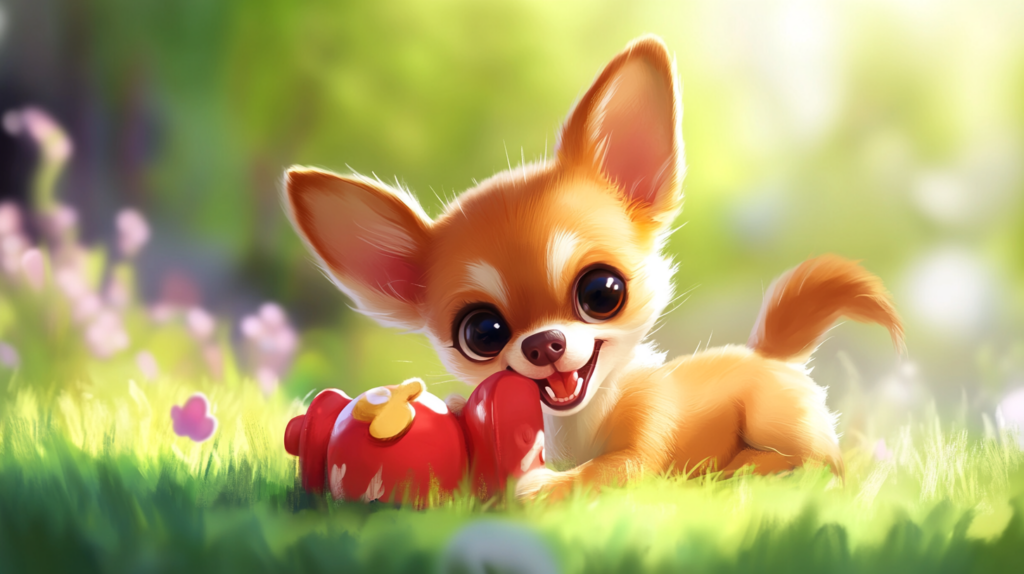
Socialization and Interaction with Others
Chihuahuas are known for their social nature and vibrant personalities. To ensure a well-rounded temperament, early socialization is crucial. Here’s why:
- Exposure to Different Environments: Introducing your Chihuahua to various settings helps them adapt to new experiences, reducing anxiety and fear.
- Meeting New People: Regular interaction with different individuals fosters confidence, preventing timid behavior in unfamiliar situations.
- Playing with Other Pets: Interacting with other dogs teaches essential social cues and reduces aggression or territorial tendencies.
Neglecting socialization can lead to unwanted behavioral issues like separation anxiety or excessive barking. A well-socialized Chihuahua is more likely to be calm and friendly, making them delightful companions. Investing time in socializing your furry friend will pay off with a happy, balanced pet who thrives on connection while displaying the quintessential Chihuahua temperament and personality.
Behavior with Children and Other Dogs
Chihuahuas are often seen as spirited little companions, but their behavior with children and other dogs can vary significantly. Here are some insights into how they typically interact:
1. Social Nature
Chihuahuas thrive on interaction. Their Chihuahua temperament and personality shine when they’re engaged with loving family members.
2. Barking Tendencies
This breed is known for being vocal, often barking to communicate excitement or alertness. Understanding this trait is vital for families.
Considerations for Families:
- With Young Children: Chihuahuas may not be the best fit for homes with small children. They can feel threatened easily and might respond with snappiness if mishandled.
- With Other Pets: Early Chihuahua socialization is key in shaping a well-rounded dog. Introducing them to other pets in a controlled environment can help foster positive relationships.
Understanding these Chihuahua behavior patterns allows families to prepare for the unique joys and challenges that come with this delightful breed.
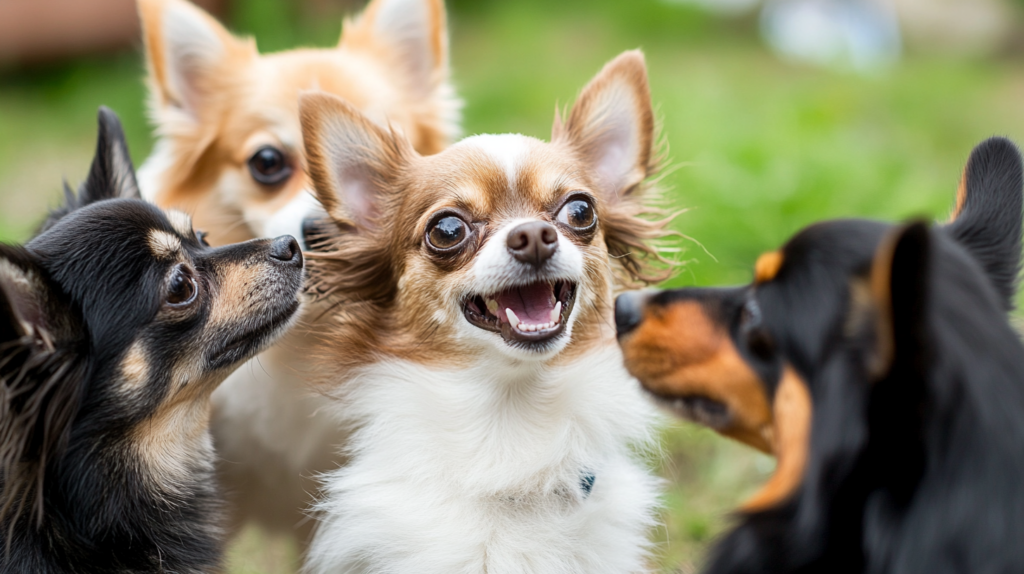
4. Health Considerations that Can Influence Temperament
Chihuahuas, despite their small size, can face various health problems that may impact their temperament and behavior. It’s important for potential owners to understand these common health issues.
1. Hypoglycemia
This condition, characterized by low blood sugar, can lead to trembling episodes, lethargy, and irritability. A Chihuahua experiencing hypoglycemia may appear anxious or restless.
2. Patellar Luxation
A frequent issue in Chihuahuas, this occurs when the kneecap dislocates. Dogs with this condition might exhibit discomfort or reluctance to engage in physical activity, impacting their overall energy levels and mood.
3. Collapsed Trachea
This health concern can lead to coughing and difficulty breathing. A Chihuahua suffering from a collapsed trachea may become skittish or anxious due to respiratory distress.
Each of these health issues can contribute to behavioral changes. For instance, a dog feeling unwell may show signs of withdrawal or increased vocalization as a means of communication. Regular veterinary check-ups are essential to monitor these conditions and maintain optimum health, ensuring your Chihuahua remains the vibrant companion they are meant to be.
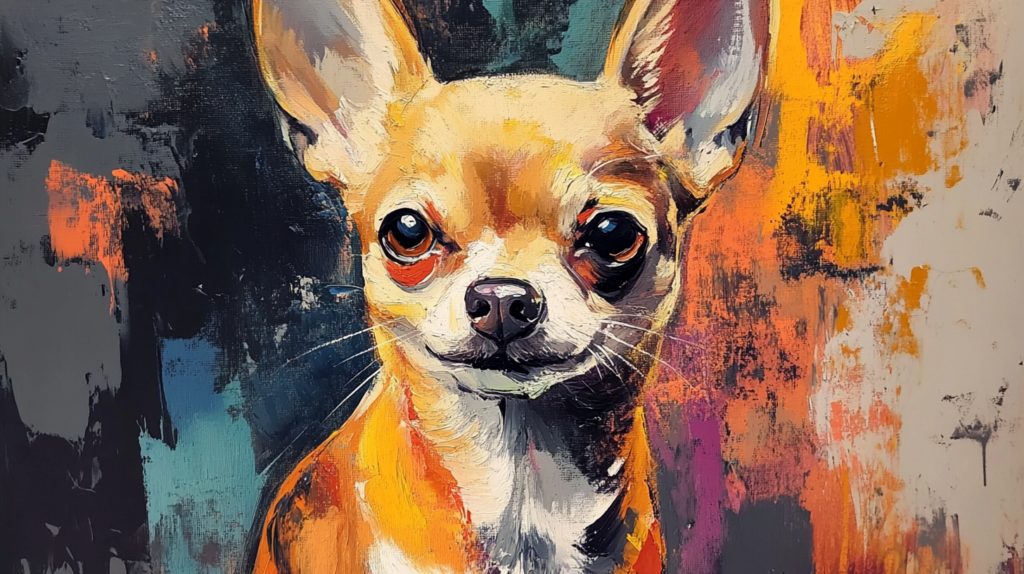
5. Training Tips for Well-Behaved Chihuahuas
Training Chihuahuas can be a delightful experience, thanks to their intelligence and eagerness to please. Tailoring your training techniques to fit their unique personality traits ensures an effective and enjoyable process. Here are some effective strategies:
Overview of Effective Training Techniques
- Start Early: Begin training when your Chihuahua is around four months old. Early socialization helps prevent issues like separation anxiety in Chihuahuas.
- Positive Reinforcement: Use treats, praise, or toys as rewards. This method strengthens desired behaviors without fear or intimidation.
- Short Sessions: Keep training sessions short (5-10 minutes) to match their attention span. Frequent breaks help maintain enthusiasm.
- Consistency is Key: Be consistent with commands and expectations. Using the same words for commands aids understanding.
- Socialization Opportunities: Regularly expose your Chihuahua to various environments, people, and other pets. This reduces anxiety in new situations.
Addressing Behavioral Challenges
Chihuahuas can develop specific behavioral challenges that may stem from their temperament or stressors in their environment. Here’s how to tackle some common issues:
- Barking and Whining:
- Identify triggers for barking or whining, such as boredom or attention-seeking.
- Redirect their focus with toys or activities when they start vocalizing.
- Jealousy:
- If your Chihuahua displays jealousy towards other pets or family members, create positive experiences by involving them in playtime.
- Ensure they receive individual attention regularly so they don’t feel neglected.
- Separation Anxiety:
- Gradually acclimate your Chihuahua to being alone with short departures, gradually increasing the time as they become more comfortable.
- Provide engaging toys or puzzles during alone time to keep them occupied.
By employing these training tips for Chihuahuas and addressing behavioral challenges proactively, owners can foster a loving and balanced relationship with their furry companions. Each dog is unique; understanding the nuances of Chihuahua temperament and personality will lead to a well-behaved pet that thrives in a nurturing environment.
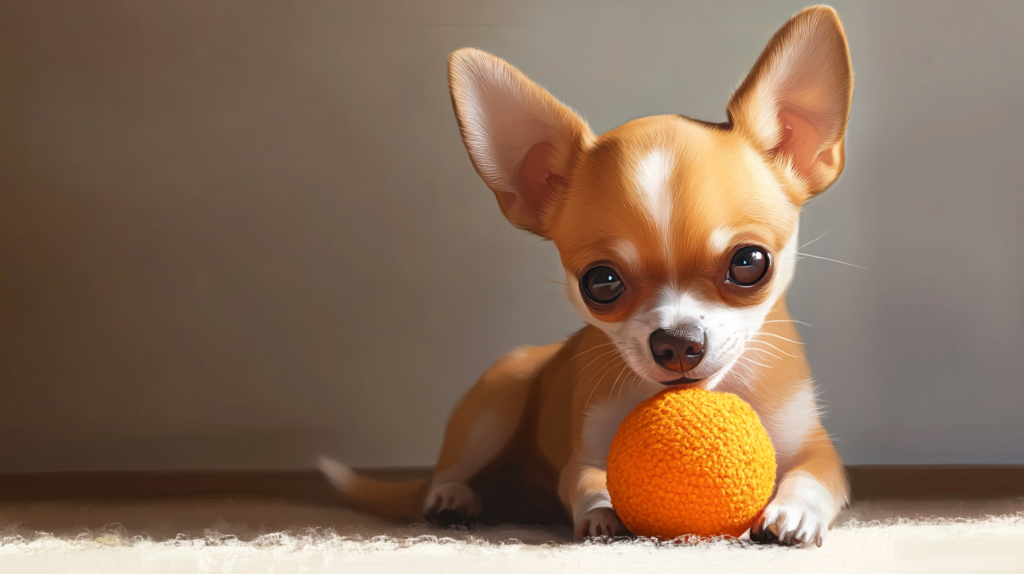
Are Chihuahuas Good Family Dogs?
When pondering the question, Are Chihuahuas good family dogs?, several factors come into play. Understanding Chihuahua temperament and personality is essential for potential owners. Here’s what to consider:
- Size Matters: Their petite stature (3 to 6 pounds) can be both a blessing and a challenge. While they fit easily into small spaces, they may not withstand roughhousing by young children.
- Loyal Companions: Chihuahuas are known for their loyalty. They often form strong bonds with their owners, providing companionship and love. This bond can foster a nurturing relationship within the family.
- Vocal Nature: This breed is quite vocal, alerting families to any perceived threats. While this trait enhances their role as watchdogs, it may become overwhelming in a bustling household.
- Socialization is Key: Early exposure to various people, pets, and environments helps prevent behavioral issues like separation anxiety or aggression.
- Health Considerations: Given potential health problems like hypoglycemia or allergies, attentive care is necessary to ensure a happy Chihuahua.
In summary, while Chihuahuas can thrive in family settings, their suitability largely depends on understanding their unique needs and ensuring a harmonious living environment.
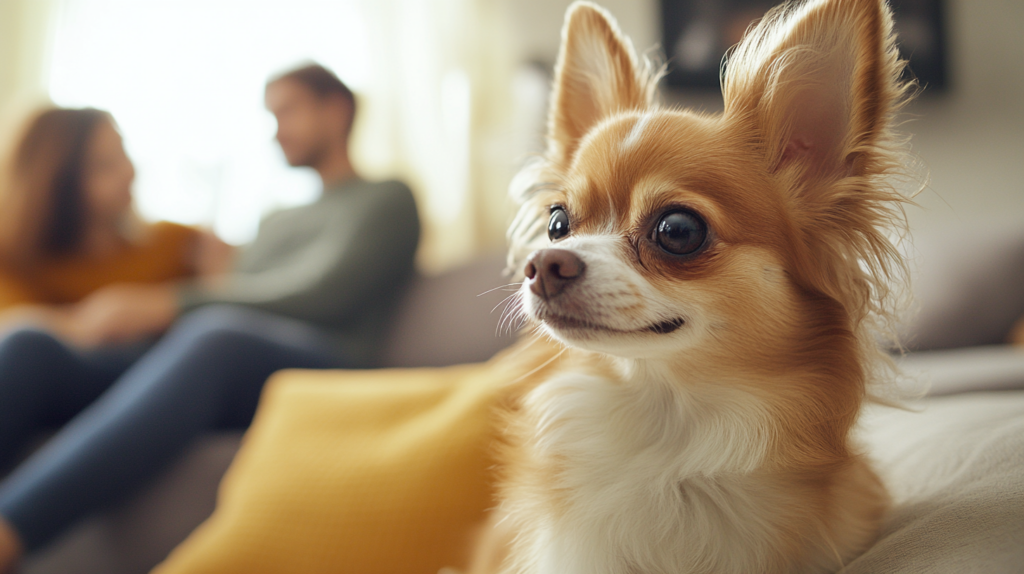
FAQs (Frequently Asked Questions)
What are the key characteristics of Chihuahua temperament?
Chihuahuas are known for their loyalty, intelligence, and feisty nature. They can also be shy at times, and their personality traits can vary significantly from one individual to another. Understanding these characteristics is essential for potential owners.
How much exercise do Chihuahuas need daily?
Chihuahuas require about 30 minutes of exercise each day. Suitable activities include short walks, playtime, and mental stimulation exercises to keep them engaged and healthy.
Why is socialization important for Chihuahuas?
Early socialization is crucial in shaping a well-rounded Chihuahua. Exposing them to different people, pets, and environments helps prevent behavioral issues like separation anxiety and excessive barking.
What health issues can affect a Chihuahua’s behavior?
Common health problems in Chihuahuas, such as hypoglycemia, patellar luxation, and collapsed trachea, can impact their behavior or temperament. For example, hypoglycemia may lead to trembling episodes that could affect their overall demeanor.
What are some effective training tips for Chihuahuas?
Effective training techniques tailored for Chihuahuas include positive reinforcement methods. It’s important to address common behavioral challenges like barking or whining with consistency and patience to promote good behavior.
Are Chihuahuas suitable family dogs?
Considering their temperament, behavior patterns, and health considerations discussed earlier, Chihuahuas can make suitable companions for families with children or other pets if properly socialized and trained from an early age.
